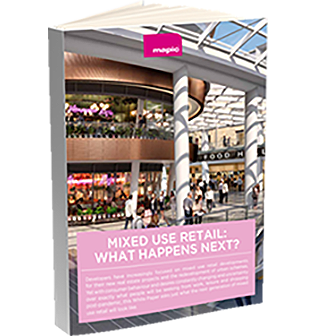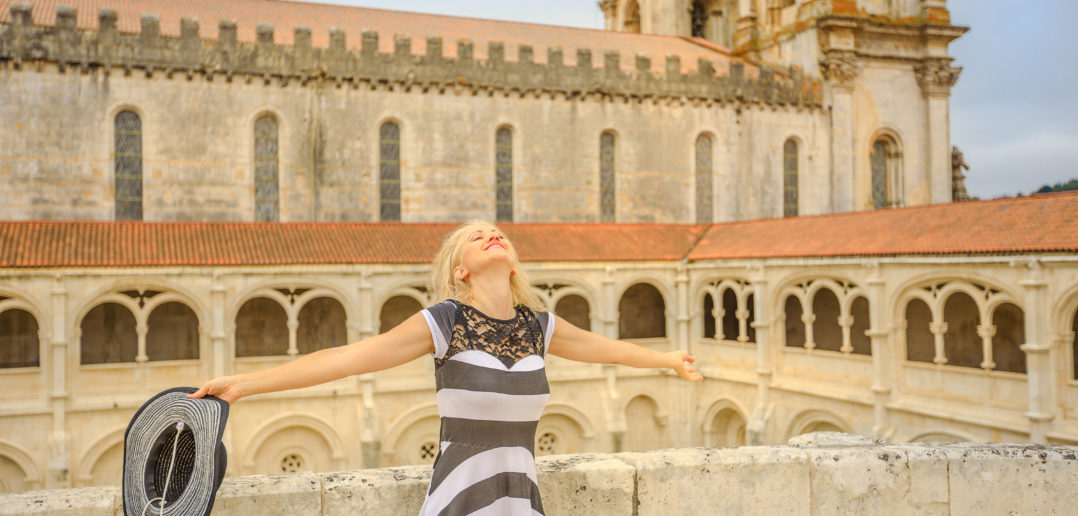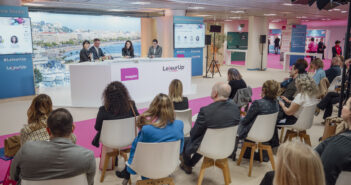It was an inspiring “Experiences of Tomorrow” virtual talk held with Louis Alfieri, principal and chief creative officer at Raven Sun Creative and Massimiliano Freddi, leisure consultant at TradeLab & chairman, EMEA Education Subcommittee and Member of the Board of International Association of Amusement Parks and Attractions (IAAPA)
Here are five key takeaways from our experts:
1. The first consumers will provide vital feedback
Massimiliano Freddi, leisure consultant at TradeLab & chairman, EMEA Education Subcommittee and Member of the Board of International Association of Amusement Parks and Attractions (IAAPA), started by asking whether there will be demand and leisure tourism opportunities and if so, of what sort.
Louis Alfieri, principal and chief creative officer at Raven Sun Creative, pointed out that the first people to visit a reopened leisure attraction “will be the loyalist customers and will have missed you while you were gone.”
He said that despite attractions, parks and LBE destinations already being among the safest venues to visit and to attract leisure tourism, much of what is done to ensure this is kept hidden from view from customers. The key factors for the very near future for recreation leisure and tourism will be the requirements to upgrade what already exists and consumer perceptions. He added of future trends in the tourism industry:
“We may have to bring some of these measures forward, so they are visible. And this loyal first group of customers can provide immediate feedback.”
2. It’s about people, not process
Freddi said that there needs to be a marketing shift in the leisure and tourism industry to “persona”. He pointed out that shopping centres and leisure attractions tend to focus on the “co-ordination of facilities” rather than think of themselves as “people businesses”.
Alfieri added that for the new characteristics of leisure tourism: “The opportunity in a world that is rapidly changing is to broaden the story and create human connections. Priorities at hoe have shifted towards family and friends. Previously people were running around, distracted.”

Mixed use retail and leisure: What happens next? – White Paper
3. Out-of-home versus Netflix
The growth of home entertainment will seriously challenge physical destinations and future trends in the tourism industry. It’s key for physical places to start the customer journey well before the visit. People need to build a story that will make their experience truly unique!
“Home entertainment has become much more affordable and there are so many different services. Going out can’t be less social and it can’t be less ‘wow’. This needs to begin from the first touchpoint, trying to understand how we achieve immersion before the actual experience. We need to integrate a deeper story,” said Freddi as he noted that time indoors may have reshaped how people view leisure and relaxation.
Alfieri added that this requires operators to rethink what they are offering in terms of the types of leisure tourism and business: “Crisis is an opportunity to look at adaptation and testing at different types of location. It’s not just about retail, it’s about museums and all sorts of venues, differentiating on service, authenticity, etc. Times will be very difficult, there will be large scale unemployment and people will be very select about spend. Outdoor entertainment will have to provide something substantial to compete with home entertainment.”
4. From mall manager to leisure operator
While leisure has increasingly been integrated into retail-led destinations, this transition has largely maintained the traditional approach to retailing. While malls have become a blended mix of activities, most landlords tend to see themselves in traditional terms and this needs to be rethought for future trends in the tourism industry.
Alfieri cited American Dream in New Jersey [a scheme which has announced a switch to a dominance of leisure]as an example of a landlord “who has really shifted to be more of a leisure operator than a traditional retail landlord. So in the future will companies be operators or partners? This is an important aspect.”
Freddi added: “The future of leisure tourism is about the fun of curiosity. How will we be remarkable?”
He said that many retail landlords may find that they have become operators of leisure, which requires a different type of thinking. “And most malls are closed, so you need to send your staff to be trained as managers of cities, not shopping centre managers. In Europe, malls are repositioning and this is a growing trend. But you have to understand that what customers expect from leisure is different from what they expect from retail,” he said.
5. Everyone is a start-up
As Europe emerges from the strict lockdowns to a less stringent but nonetheless changed way of doing things, some locations may find themselves in a better positon than others, according to the speakers. This creates leisure tourism opportunities around recreation and business tourism.
Alfieri pointed out: “Not everything has to be about high price and high capacity. For the next six to 18 months, there will be regional advantages because there are less barriers to people visiting smaller places which are closer to their homes.
“The future favours the bold. There is room for new brands, business models and investors. There has been a lot of transactional thinking, now it has to be about long term operations.”
Freddi said that this change mean that all leisure and tourism businesses were having to consider how they recommenced their business: “Right now, everyone is a start-up.”
However, he warned that the patch ahead is going to be very tough. “The bad news is that it will be hard,” he said. “We are trying to understand what is dangerous. This might be a way of reinventing socialisation, perhaps around smaller groups, for example favouring experiences like escape rooms.”
Conclusion
The coronavirus pandemic is likely to rewrite how retail landlords view their properties and future trends in the tourism industry, their operations and what they offer tourists and visitors. But this change, which was underway anyway, is anything but straightforward. It will involve retail and leisure locations thinking about themselves as people businesses, creating immersive experiences that rival and exceed at-home entertainment and have a wow factor.
The bad news is that to achieve this is going to involve some fundamental rethinking of leisure tourism opportunities but the good news is that in many ways it levels the playing field, with smaller, local and adaptive businesses as likely to take advantage of these changes as their larger rivals, in an era where everyone is a start-up.
To register to our next sessions or to watch the other previous episodes please visit leisurup.com.
IMAGE CREDIT: bennymarty, Getty Images




